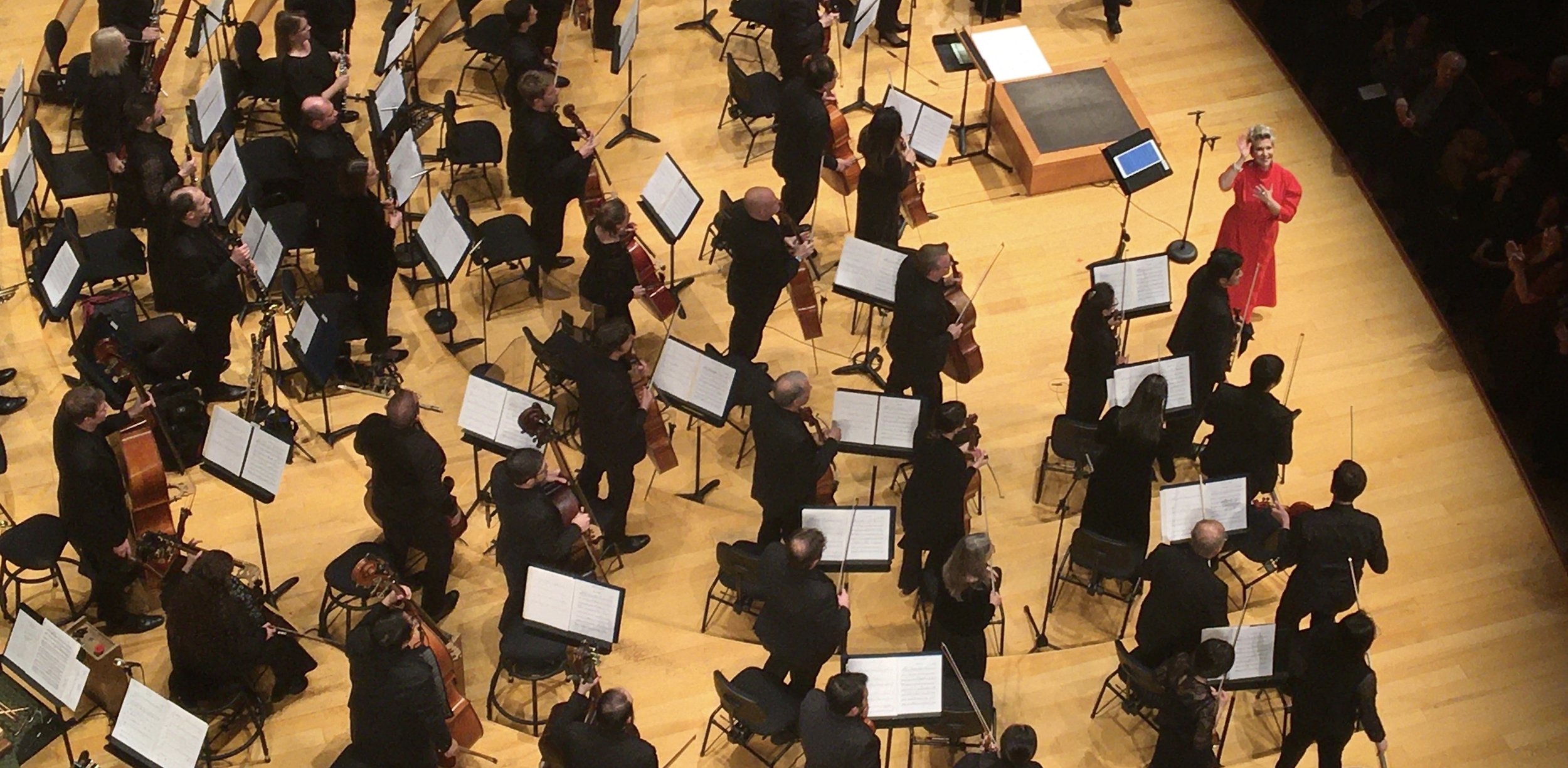Original image by There Stands the Glass.
Deanna Ray Eberhart fangirled during her session at a master class conducted by Joyce DiDonato at Helzberg Hall on Thursday, January 11. Rather than responding appropriately to a vocal example provided by DiDonato, Eberhart exclaimed something like “hearing that up close is so cool!”
I completely sympathize with Eberhart. DiDonato, the iconic international star from Prairie Village, Kansas, was my 2022 Artist of the Year. DiDonato’s innovation approach has been a key component of my gradual embrace of operatic music. Her magnificent voice is among my favorite instruments.
I spent $39 for a lousy seat high above the stage during the first of DiDonato’s three concerts with the Kansas City Symphony on Friday, January 12. Yet for a moment I felt something akin to Eberhart’s experience. Due to an odd acoustical effect, the first offstage missive made by DiDonato in her dramatic entrance to Charles Ives’ ethereal “The Unanswered Question” seemed as if it had been whispered directly into my ear.
Nothing else in the lengthy program equaled the Ives, although a rendition of Gustav Mahler’s "Ich bin der Welt abhanden gekommen" appeared to be excellent from my dicey location. I also relished DiDonato’s separate encores of Strauss’ “Morgen!” and sappy but heartrending readings of “Danny Boy” and “Shenandoah”.
I won’t include my opinions about the remainder of the program here, other than to note intriguing new pieces by Joel Thompson and Chen Yi and Zhou Long were performed. Rather than splurging on a good seat for the two repeat performances this weekend, I might binge on a few of the hours of previous DiDonato master classes online.



